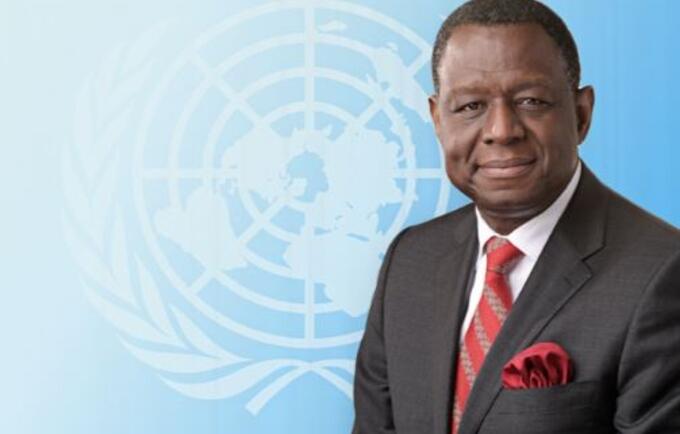Welcome to the release of The State of World Population 2016, published by UNFPA, the United Nations Population Fund.
This year’s report is entitled, “10: How our future depends on a girl at this decisive age.”
In some parts of the world, age 10 can be a time of exploration, rapidly expanding horizons and new possibilities.
But in other parts of the world, it can be a time when barriers start appearing on the path to adulthood, limiting options, choices and opportunities. This is especially true for girls.
In some countries and communities, when a girl reaches age 10 and approaches puberty, she may suddenly be seen not as a girl capable of anything she sets her mind to, but as a commodity that may be sold, traded or trafficked--for marriage, for childbearing, for free labour, for sexual exploitation.
Although risks abound for both girls and boys, gender discrimination makes these risks worse for girls in almost every way.
Consider the facts.
Every day, 47,700 girls, many of them as young as age 10, are at risk of early and forced marriage.
With child marriage often comes pregnancy, and with child pregnancy come health risks and a curtailed education, undermining girls’ prospects for jobs and self-sufficiency.
For millions of girls, the arrival of puberty marks the beginning of a lifetime of poverty, powerlessness and missed opportunities.
Their doors to the future slam shut, and their lives stop being their own.
This is an unforgivable injustice and a violation of girls’ fundamental rights.
When a girl enjoys her rights, is able to able to stay in school, stay healthy and is protected from child marriage and early pregnancy--she has a better chance of realizing her full potential by the time she reaches adulthood.
She will be better equipped to find a job, earn a good wage and seize opportunities as they arise.
The State of World Population shows that girls who reach adulthood with an education and their health and rights intact stand to triple their lifetime income. Higher incomes and greater productivity can help fuel progress for entire countries.
Over the next 15 years alone, developing countries together stand to gain or forfeit at least $21 billion, depending on whether they invest in the well-being, education and independence of their 10-year-old girls today.
The number may seem small, considering it covers so many countries. But for the individual girl, the gains can be substantial.
The State of World Population 2016 shows that our collective future depends on how we support today’s 60 million 10-year-old girls today as they start their journey from adolescence to adulthood.
Today’s 10-year-old girl will be 24 when progress towards the United Nations’ new development agenda is tallied in 2030.
That agenda aims for inclusive, equitable and sustainable development that leaves no one behind.
The real test of success of the development agenda will be whether every 10-year-old girl today will be healthy, educated and productive in 2030.
With support from family, community and nation, and the full realization of her rights, a 10-year-old girl can thrive and help bring about the future we all want.



